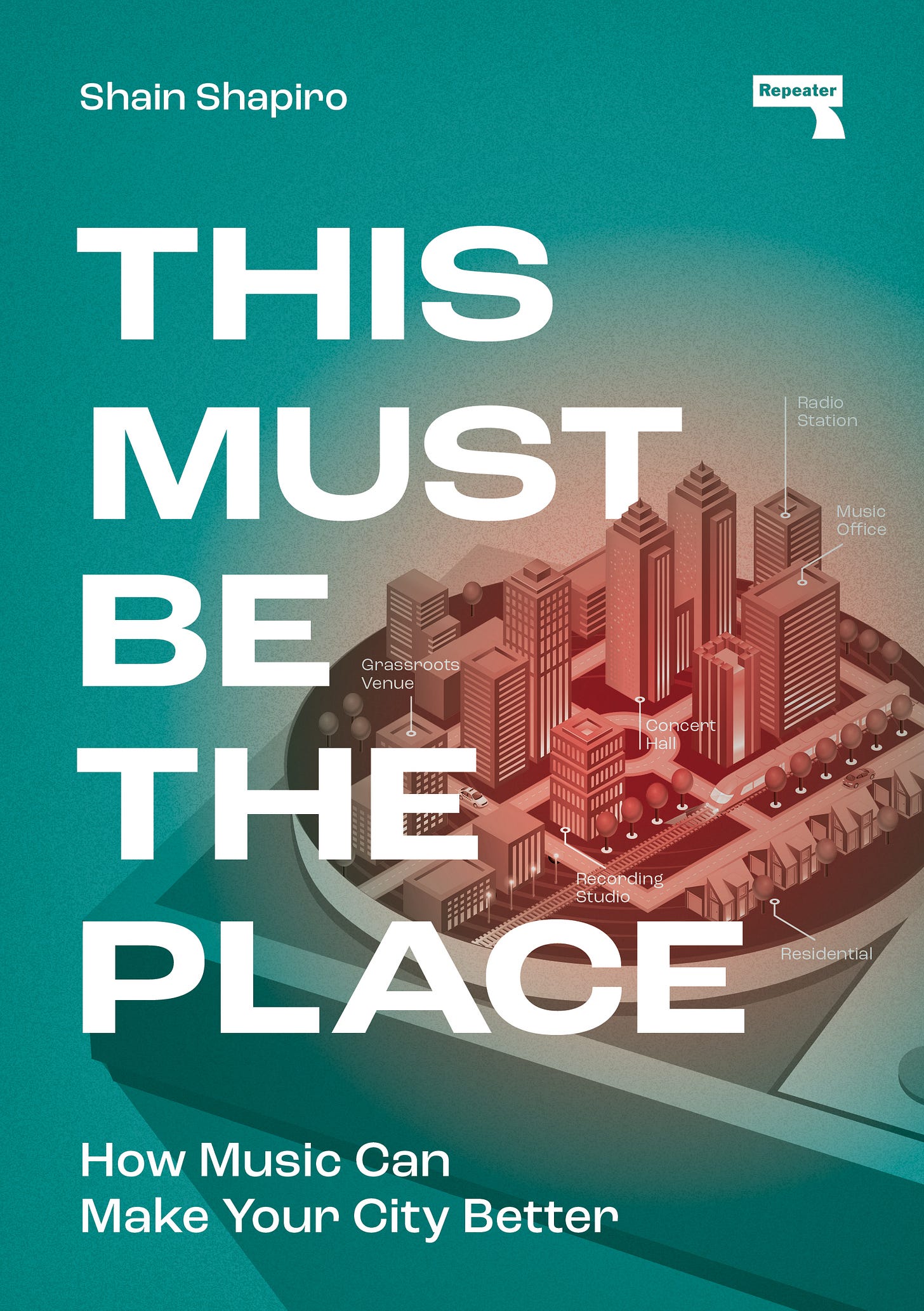How To Create A Global Music Policy - Part 3
An ongoing series on how music can make the world better
Every single person, no matter where they live or what they look like, should be able to pursue a career in music (if they choose) and be treated as any other worker in any other sector. A job is a job. All can contribute to communities, exchequers and our quality of life. But for musicians, often a job is not treated like one. In many countries, there is no economic framework for music to be a job in the first place. The reason lies with intellectual property and our collective inability, in much of the world, to take it seriously. And this is what a global music policy could change.
For music to be an economy, it requires economic infrastructure. And in music’s case - this begins - and is sustained - with intellectual property. So Part 3 of my Global Music Policy series proposes the question - what if we affirmed music as a global economic right? what would it change?
Some context: In 1886, the Berne Convention on the Protection of Literary and Artistic Arts was introduced. Now it is administered by WIPO - the World Intellectual Property Organization - one of the UN’s agencies. There have been many amendments to it - the last major one in 1979 - and countries ratify it and domicile it into local law all the time. In 2022, Uganda ratified it. But in many respects, it is a piece of paper, not an effective governance mechanism. While it does mean that copyright, in theory, is protected in each of these nations - 181 of them in total, Afghanistan still has it on the books and the Taliban burned musical instruments this year, deeming them immoral.
The reality with music - as a protected literary and artistic art - is more complex and dispiriting. More than half the global population lives in countries that do not protect anything. Dozens of countries lack musician authors or performers societies, which are called collective management organizations (CMOs). A number of other nations have them, but they are iffectual, corrupt or both. Those that do this well - and as a result have thriving music economies - are in the minority.
At the same time, more music policies are being adopted now than ever before (see previous Substack). This is the equivalent of grabbing a shovel, jumping into a hole and being told to dig up. If there’s no effective, transparent way to get paid when music is disseminated - online, live, on the radio, on Spotify - piracy becomes part of the national policy. A music strategy may be able to celebrate music, but it will achieve little else.
This doesn’t matter as much for those working in developed nations that have robust copyright infrastructures and produce the majority of commercial hits. It doesn’t - for the most part - impact the bottom line of what’s already successful. What it does impact is music’s ability to be an economic tool to address poverty, foster economic growth and create long-term revenue for artists and writers everywhere without them having to move.
We change this by affirming music as an economic right, everywhere and investing in the structures to ensure it - as an economy - can function. We need to fill the hole, level the ground and then we can build on it sustainably. But to do so, we need to understand what we’re losing with the current status quo. If music was an economic right, then there would be a requirement - in state and intergovernmental policy - to ensure there was an infrastructure in place for the economy - in its most simplest terms - to function.
Yesterday at the Hamilton date of my book tour, a Canadian film composer and I got to talking. He told he scored a movie that showed in about 40 countries, including it being a minor hit in a few Asia-Pacific nations. Unfortunately, these usages were mostly in countries that didn’t track, or remunerate, copyright and he was left out pocket. This happens every day, all over the place. And this is what we can change.
Until then, a music policy builds up hope - the equivalent of looking down at the hole and being proud of its size. It leads us to treat music solely as a cultural or public good. This can make us ignore its economic impact. If there are 181 signatories of the Berne Convention, there should be 181 transparent, reputable and well-managed suite of laws that respect - and mandate - IP protection, with CMOs alongside to do the necessary tracking and remitting. But there aren’t.
Music will never go away, but in many parts of the world, the economy required for it to flourish has never been set-up. A global music policy - with its central foundation being to affirm music as an economic right - would change that.
Check out my book, This Must Be The Place: How Music Can Make Your City Better, released last month on Repeater Books.





